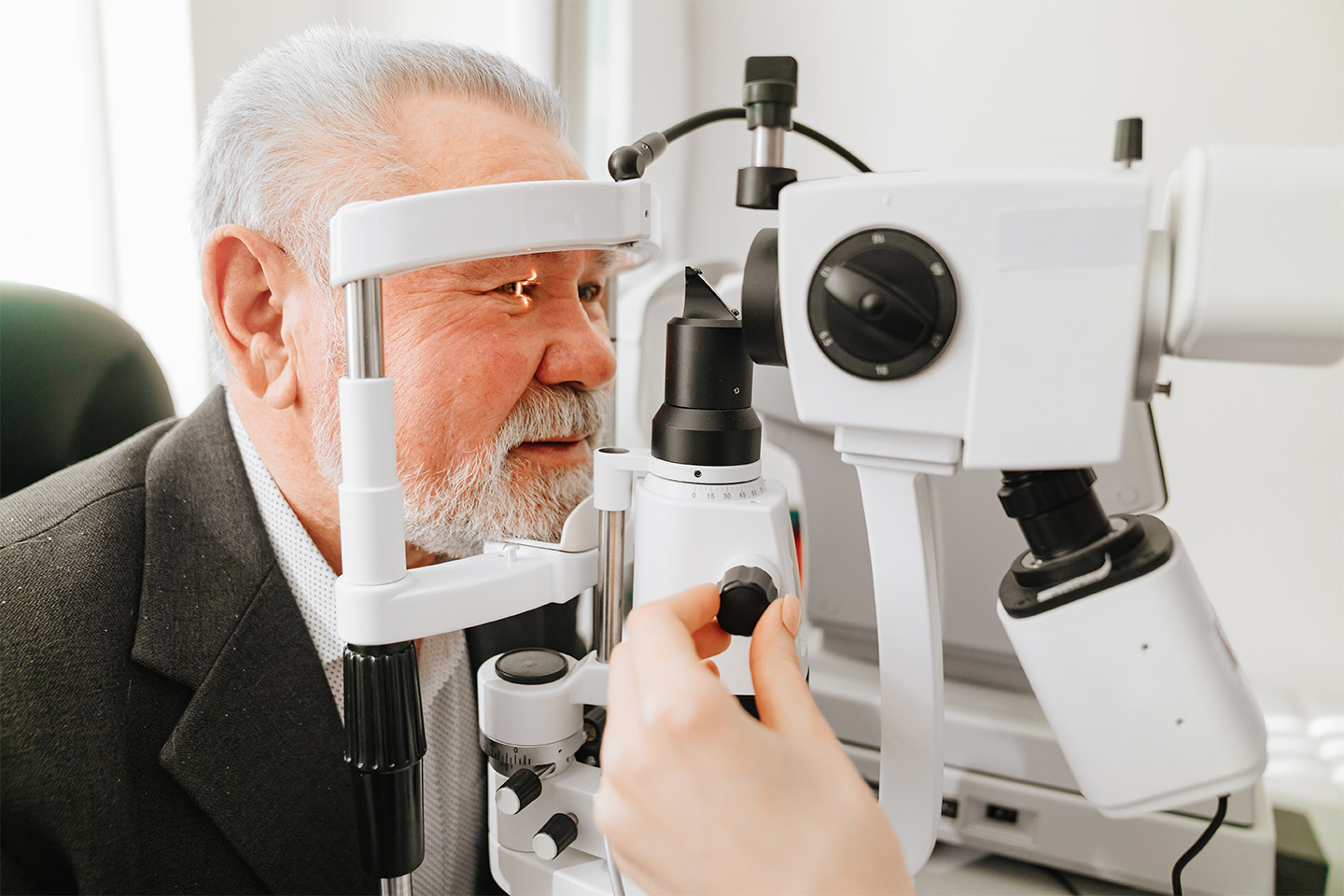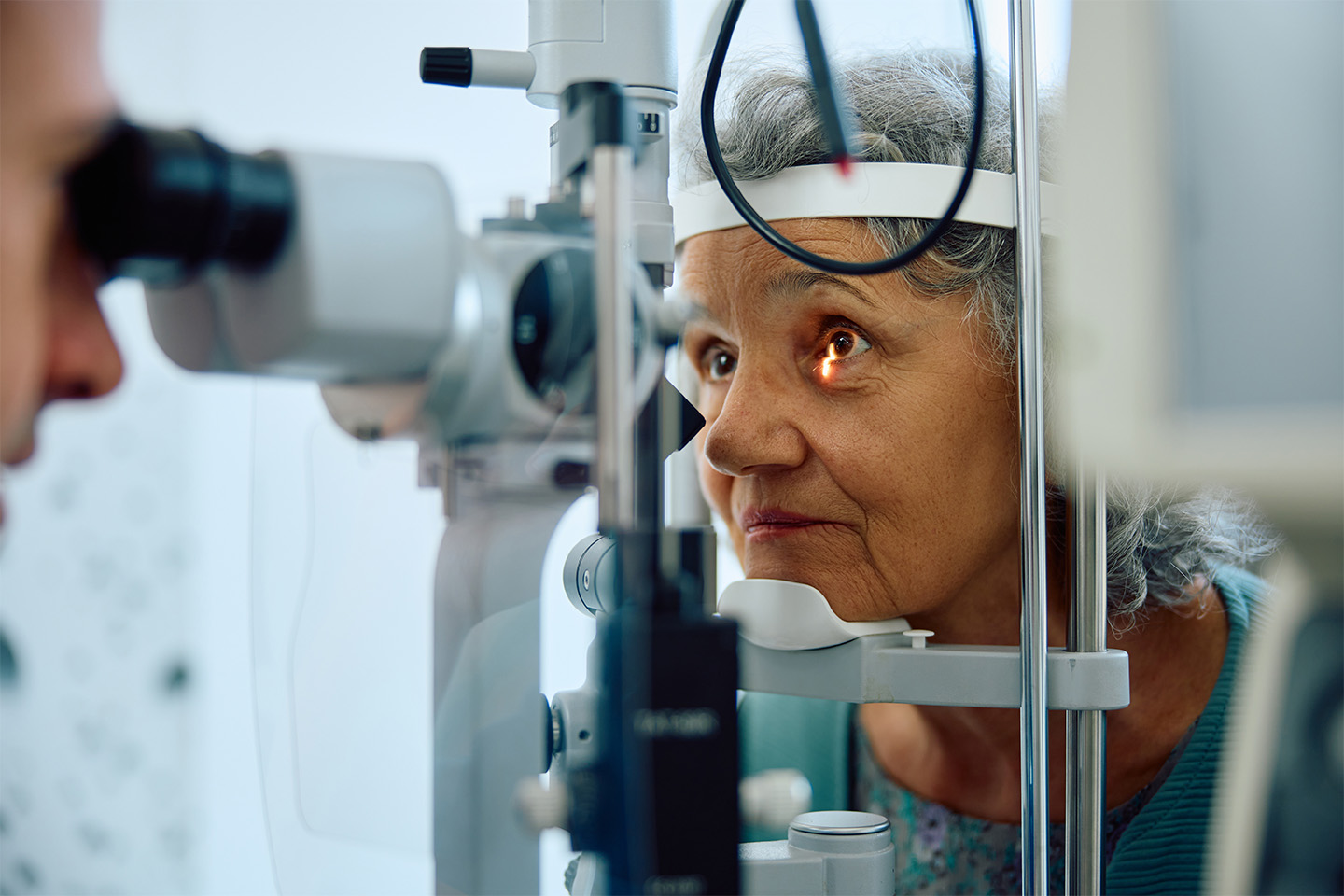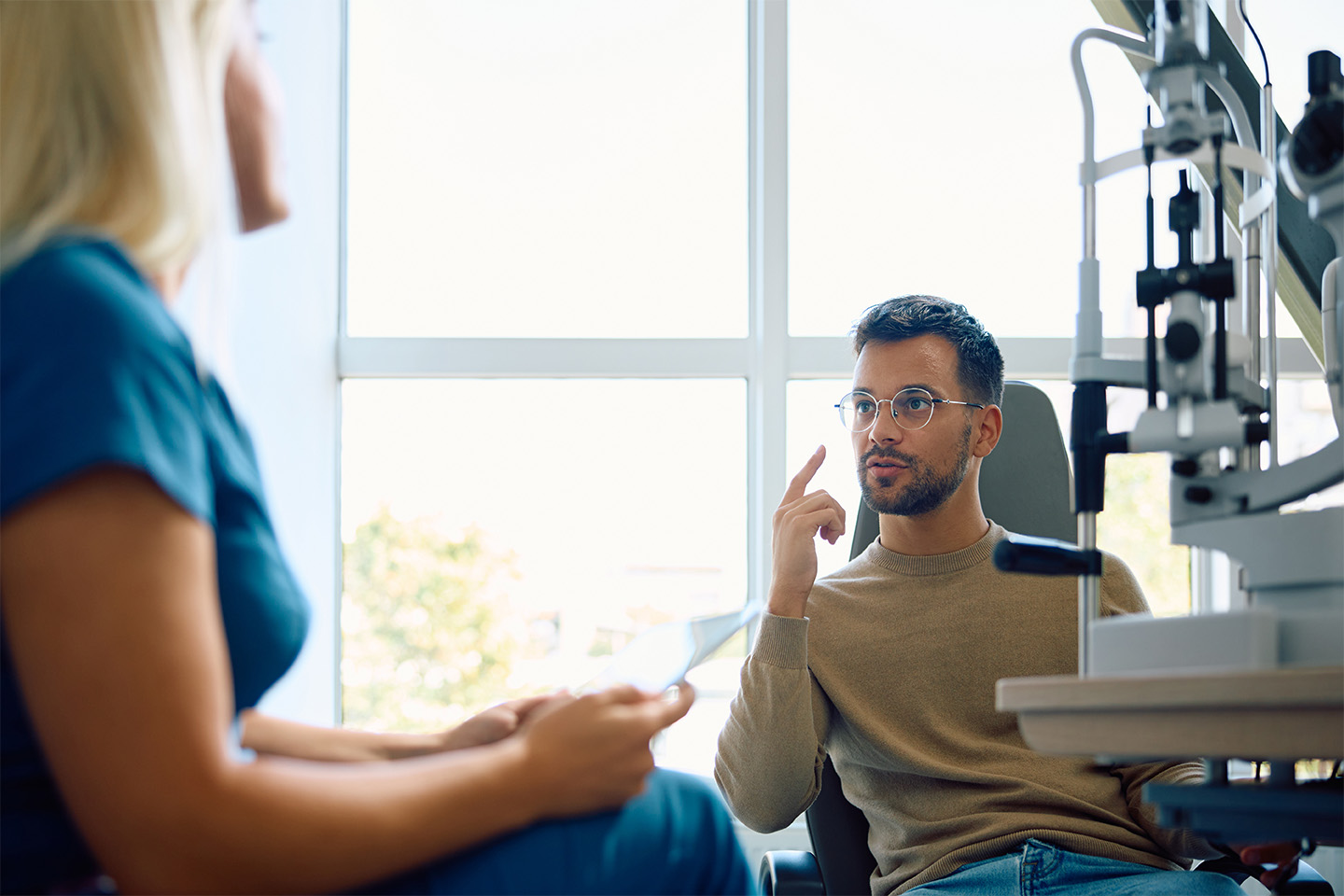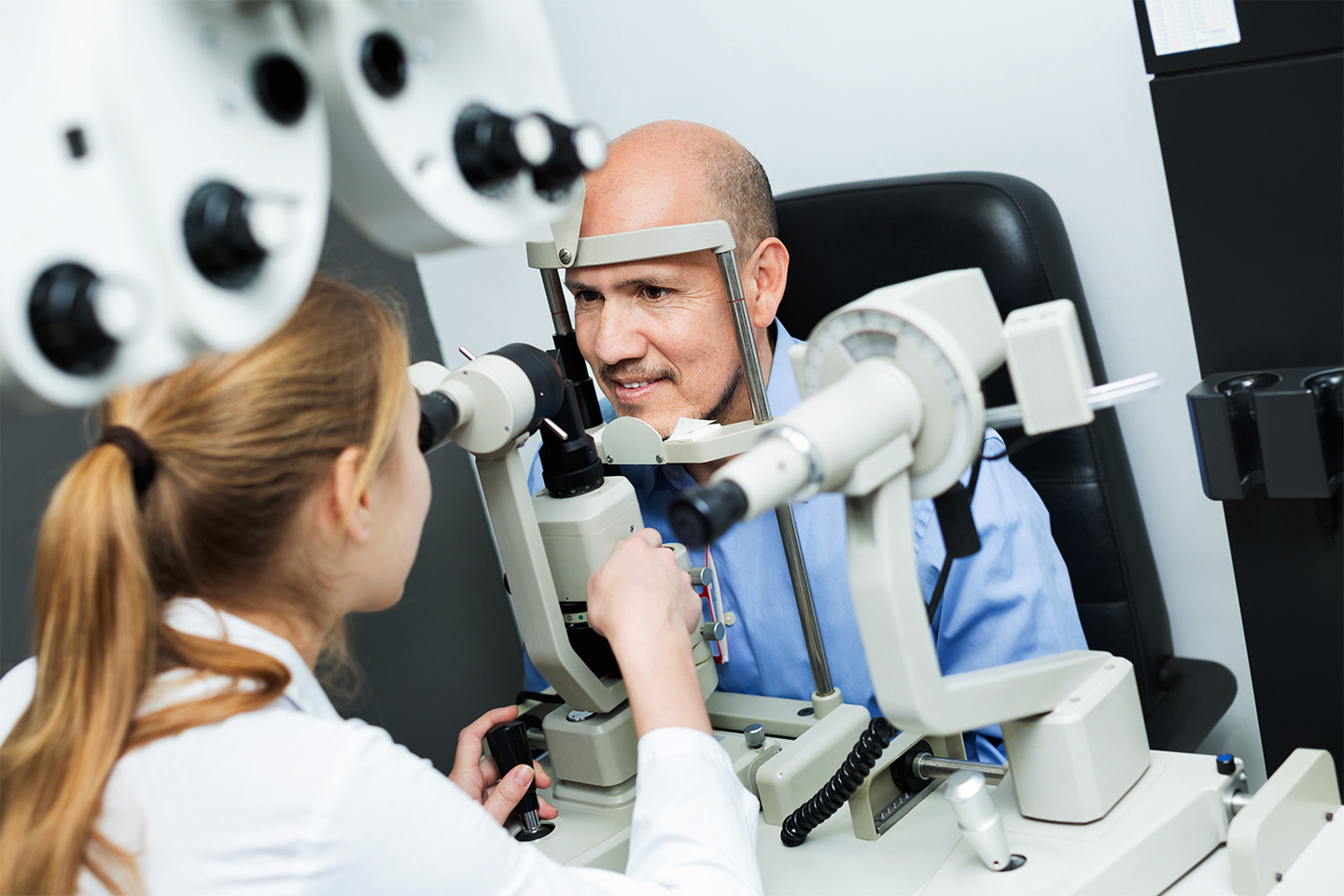6 Signs It’s Time for an Eye Exam

Everyone can benefit from regular eye exams, but if you’re experiencing any of these symptoms, you’re better off scheduling a checkup sooner than later.
If you’re having trouble reading this blog post, it’s probably time to get an eye exam. But even if this text looks crystal-clear to you, you should consider scheduling an appointment to get your eyes checked. Too often, we take our eyes for granted; if they’re working well, we should do everything we can to keep them that way!
Eye doctors strongly recommend regular eye exams all throughout life, especially for patients over the age of 40. People with diabetes or with known eye conditions (or a hereditary predisposition to develop one of those conditions) should see the eye doctor at least once a year.
However, these suggested timelines are just that: suggestions. If you notice any of these six signs, don’t wait to see your eye doctor — schedule an appointment right away:
-
You notice vision changes
When we think of “vision changes,” we probably first think of increased difficulty seeing objects. Sometimes, this will mean squinting to read the close-up text. Other times, we’ll have trouble discerning objects that are far away. In either case, a trip to the eye doctor is warranted.
But vision changes can include problems besides reduced visual acuity. Seeing “halos” around objects, experiencing increased difficulty seeing at night, or finding that you can see better when you cover up one eye all merit a trip to the optometrist.
-
You have diabetes
The defining characteristic of diabetes is high blood sugar, which can cause a number of ocular health problems. This is because high blood sugar levels damage small blood vessels, including those that serve the eye. After those vessels become damaged, the body compensates by creating new blood vessels.
The trouble is that those new vessels are fragile, so they break and bleed easily. When they do, the retina – or the back part of the eye – becomes clouded and difficult to see through. The process is what doctors call diabetic retinopathy, and eye exams allow your doctors to monitor and hopefully slow its progression.
-
You experience a lot of eye strain
The lens on the front of your eye is surrounded by a tiny muscle called the ciliary muscle, which relaxes and contracts to change the shape of the lens and allow your eye to properly focus images. But if this lens stiffens or yellows, as some eye diseases cause it to do, the ciliary muscles need to work even harder to get images to focus properly.
As a result, you will experience mild soreness in your eyes. Technically, this soreness is called “eye strain,” and it is a sign that you should talk to your doctor about your vision. Eye strain can indicate a change in prescription, a sensitivity to computer screens, or foretell a more serious problem.
-
You have trouble driving at night or reading street signs
The eye is a complicated machine with a series of interconnected parts, and that chain is only as strong as its weakest link. When one part of the eye begins to malfunction, the whole apparatus will stop functioning as well. For this reason, it’s important to watch out for the first symptoms of a more serious problem occurring beneath the surface.
Often, serious eye problems will first impact the things that were relatively hard to see, to begin with: objects that are far away and objects in low-light. If you’re experiencing difficulty seeing while driving or trying to read street signs at night, think of this as an early-warning system telling you that some part of the machine is failing. Your eye doctor will be able to figure out exactly what’s causing the problem.
-
Your eyes are red, dry, or itchy
Dry and itchy eyes can be attributed to a range of potential causes, spanning from relatively harmless allergies and much more serious infections, so it’s critical to get these symptoms checked out immediately. Even if your red, dry, and itchy eyes are just due to allergies, your doctor can make recommendations to increase your comfort. These recommendations could include switching from contact lenses to eyeglasses or using a treatment like artificial tears.
-
You can’t remember when you last had an eye exam
If you’re not sure when your last exam was, it’s definitely time to see a doctor. The expert optometrists and ophthalmologists at Swagel Wootton Eye Institute will assess your vision, determine whether there are any underlying vision problems, and help you find the correction solution that’s best for you, whether that be LASIK, glasses, or another procedure. Visit our Mesa or Chandler locations for more information.









